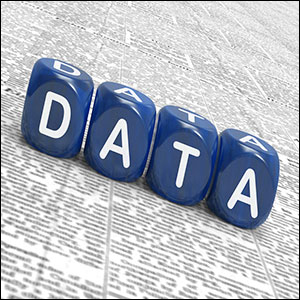
You’ve probably heard the expression, “A friend in need is a friend indeed.” For this column, I am going to play with that expression to make a point. Instead of a friend, I will refer to friends as data stewards. Instead of indeed (meaning certainly), I am going to insert a space in the word and write about deeds in terms of the relationship that a data steward is expected to nurture with data once recognized into this important role. It’s all in the data.
The role of a data steward is indispensable. With the increasing complexity and volume of data that organizations deal with daily, having recognized personnel to oversee the care and governance of this data is crucial. “A steward in need is a steward in deed” encapsulates the essential nature of this role and highlights the significance of equipping data stewards with the necessary tools, knowledge, and support to excel in their duties. Implementing a Non-Invasive Data Governance (NIDG) approach is a strategic way to provide data stewards with the resources they need without overburdening them with unnecessary processes and controls.
The NIDG approach emphasizes the importance of leveraging existing roles within the organization, recognizing that individuals who work with data on a daily basis are best positioned to manage it effectively. It seeks to formalize these roles into defined data stewardship responsibilities, ensuring that data stewards have a clear understanding of their duties and the accountability to carry them out. This approach fosters a culture where data stewardship is not an added burden, but a formal recognition of the critical work these individuals already do.
Artifacts for Data Stewards
Providing data stewards with well-crafted artifacts is key to enabling them to manage organizational data effectively. These artifacts include comprehensive data dictionaries, business glossaries, and data catalogs/metadata repositories. Such tools not only help in demystifying data-related jargon, but also in making the relationships between different data elements clear. They serve as valuable references that data stewards can rely on to ensure data consistency, accuracy, and proper usage across the organization.
These artifacts act as the foundation for data governance frameworks, supporting data stewards in their daily operations and decision-making processes. By incorporating detailed descriptions, usage guidelines, and ownership information within these tools, data stewards can navigate the complexities of data management more efficiently. This ensures that every team member, from analysts to executives, has a consistent understanding and approach to utilizing the organization’s data assets, reinforcing the overall data governance strategy.
Knowledge Empowerment
Equipping data stewards with the necessary knowledge involves ongoing education and training programs tailored to the unique data governance needs of the organization. This includes training on the latest data privacy laws and regulations, data quality management practices, and the use of data governance tools and software. By staying informed about best practices and emerging trends in data management, data stewards can make informed decisions that align with the organization’s data governance policies and objectives.
These educational initiatives should foster a culture of continuous improvement and collaborative problem-solving among data stewards. Offering platforms for knowledge exchange, such as forums or communities of practice within the organization, can significantly enhance the collective understanding of data governance challenges and solutions. This proactive approach to knowledge sharing ensures that data stewards are not only equipped with the current knowledge, but are also prepared to adapt to future changes in the data landscape, enhancing the resilience and effectiveness of the organization’s data governance efforts.
Engagement and Support
Creating an environment that encourages engagement and provides support to data stewards is crucial for the success of any data governance initiative. This involves establishing a data governance council or committee that includes data stewards from different departments. Such a platform allows for the sharing of challenges, solutions, and best practices among data stewards, fostering a sense of community and collective responsibility for the organization’s data. Additionally, offering support in the form of easy access to senior management for escalations, feedback mechanisms, and regular recognition of the contributions made by data stewards can significantly boost their morale and commitment to their roles.
Incorporating regular training sessions and workshops that address the specific challenges faced by data stewards in their day-to-day activities is vital. These sessions should not only focus on technical skills, but also on developing soft skills such as communication, negotiation, and leadership, which are essential for effective data governance. Encouraging cross-departmental collaboration through these activities can help break down silos, enabling a more unified approach to data governance. By prioritizing the well-being and development of data stewards, organizations can cultivate a nurturing environment that empowers stewards to perform their duties with confidence and efficiency.
Incorporating the NIDG approach to assist data stewards involves recognizing their pivotal role in the organization’s data governance framework and providing them with the artifacts, knowledge, and engagement opportunities they need to succeed. By doing so, organizations can ensure that their data is well-managed, secure, and leveraged effectively to support strategic decision-making and operational excellence. Data stewards, when adequately supported, truly become stewards in deed, safeguarding one of the organization’s most valuable assets: its data. A steward in need is certainly a steward in deed. Remember … it’s all in the data.
Non-Invasive Data Governance™️ is a trademark of Robert S. Seiner and KIK Consulting & Educational Services
Copyright © 2024 – Robert S. Seiner and KIK Consulting & Educational Services
